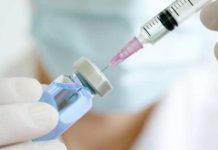1. What works for one person may not work for all
Medicines used to treat ADHD are usually described as stimulants (ie, Ritalin, Concerta, Dexedrine, Adderall, Vyvanse) or non-stimulants (ie, Strattera). Not every drug works for all people. It can take your doctor some time to find the right medication for you. If you think your medicine has not improved your symptoms or find the side effects intolerable, you have other options. Talk to your doctor about the possibility of switching medicines.
2. Medication is just one tool used in the treatment of ADHD
Medication tends to only help symptoms like attention, concentration and focus. Which leaves symptoms like disorganization, procrastination, and impulsivity untreated.
There’s a lot you can do to help yourself. Filing cabinets can be used to sort out paper clutter. Try a calming yoga or meditation class. Schedule regular healthy meals and improve your diet. Exercise every day and consider budgeting advice if you have difficulty managing your money.
3. Long-acting medication may control symptoms better than short-acting medication
Levels of a medicine in your body can be likened to a wave. Just before your next dose, the wave is at its lowest point (ie, lowest levels in your body). Two to four hours after taking a short-acting medicine, the wave has peaked, corresponding to the highest amount of medicine in your body.
Long acting forms of ADHD medication use special coatings or matrix-like cores to slowly release the drug over 24 hours. This evens out the peaks and troughs associated with taking a drug two or three times a day. Many patients report improvements in mental focus and hyperactivity with 24-hour release medication.
Ask your doctor if changing the form of your medication may benefit you.
4. Create lists to keep you on task
It can be a real challenge to stay focused and complete tasks when you have a disorder that gets in the way. Download a “to do” app on your phone or tablet or carry a notebook and pen in your pocket and document all the things that you need to do. Prioritize tasks and aim to get through a certain number each day. If a task can be done in two minutes or less then do it now, rather than leaving it for later.
5. Sunlight and fresh air helps boost your mood
Being active outdoors everyday helps reduce hyperactivity and inattention. Choose an activity that you really like doing and consider asking a friend to join you. The more vigorous and fun the activity, the more effective it is at burning up excess energy and feelings of aggression. Exercise also helps relieve stress and sleeplessness as well as being good for your overall health.
6. Erratic eating makes you more distracted and less focused
Don’t wait until you are starving to eat. Schedule regular meal times and keep healthy easy snacks within reach to avoid running to the nearest vending machine.
Healthy meals that include lots of vegetables and complex carbohydrates such as wholegrain bread provide long lasting energy and more stable sugar levels in the blood which improves your emotional health and decreases hyperactivity.
7. Too much sugar and deficiencies in iron and zinc may increase hyperactivity
It’s not only how you eat it’s what you eat. A diet high in processed foods and soft drinks may cause peaks and troughs in blood sugar, and trigger periods of hyperactivity.
Deficiencies in some vitamins such as iron, and zinc may increase levels of apathy and tiredness. While research generally has not found an association between ADHD symptoms and preservatives, artificial flavorings, or artificial colourings, some small studies have reported small effects.
Promising effects have also been noted with magnesium, vitamin B6 and L-carnitine supplementation; however, more research is needed. Talk to your doctor about which dose is best for you if you wish to take supplements.
8. Fish oil supplements may help you focus
Omega-3 fatty acids have been shown to improve behavior and academic performance in some people with ADHD. Omega-3 fatty acids can be found in foods such as salmon, tuna, sardines, walnuts, flax seeds and canola oil. Fish oil supplements are an easy way to boost your intake of omega-3’s but check what dosage is best for you with your doctor first.
9. Valerian, roman chamomile, lemon balm and passionflower are all herbs with calming properties
A nice hot cup of calming herbal tea can be a good way to wind down at night after a stressful day. Several herbs have calming properties and may help relieve stress and improve sleep. Herbs still have side effects and the potential to interact with some medicines so always ask your doctor before taking herbal supplements.
10. A good nights’ sleep can vastly improve ADHD symptoms
You may have already found out the hard way that staying up all night isn’t helpful if you have ADHD. Sleep deprivation can reduce your ability to cope with stress or maintain focus during the day.
Research has shown that inattention scores in people with ADHD correlate with excessive daytime sleepiness. To improve your sleep, exercise daily (but not within an hour of bedtime); avoid caffeine at night; create a predictable bedtime routine (such as having a shower or bath, listening to some quiet, soothing music); and stick to a regular sleep and wake-up time, even in the weekends.



























